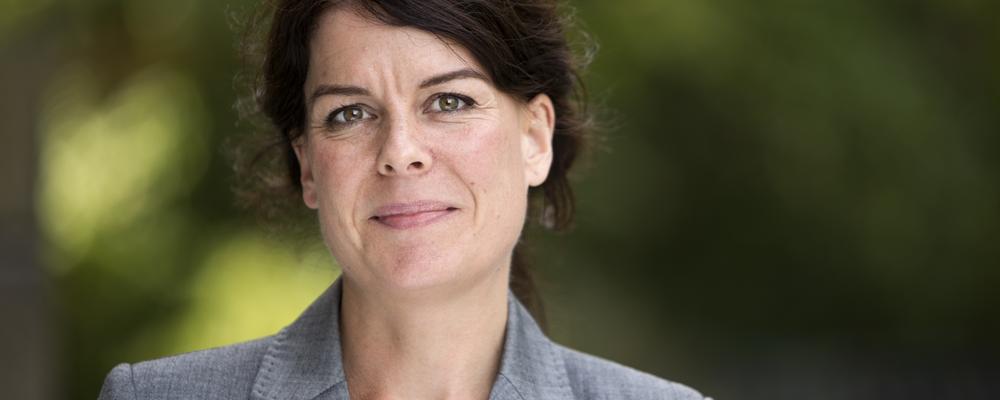
- Home
- Research
- Find research
- Mia Liinason researches on how feminism can change various aspects of society
Mia Liinason researches on how feminism can change various aspects of society
Mia Liinason is a Professor in Gender Studies. She researches feminism as a transformative project and social justice in a global perspective. She is also Wallenberg Academy Fellow.
What’s your research about?
'I am interested in the relationship between power and resistance in feminism and my research concerns feminism as a transformative project; i.e., how feminism can change various aspects of society. Feminism is about social justice and moving existing boundaries such as social and political ones. My doctoral thesis was about how feminism changes structures in academia, but transformative feminism can also be about changing policies and civil society and about the distribution of resources.'
Why is this so interesting?
'Because these are issues that affect our lives, and the aim to increase the democratic and equal participation in society concerns us all. These issues exist on a personal, everyday level but also at a higher, political level. The tension between the personal and the political raises interesting questions.'
'When I grew up, my mother worked full-time but was also responsible for all of the household chores. My mother took pride and value in her double workload and never complained about the share. I realised that a change had to come, so I started to take interest in issues of social justice. I realised that these are very complex issues. There are no easy answers, which is something I find very interesting.'
What are you researching right now?
'Today, I am researching social justice in a global perspective. I my latest project we investigate among other things the struggle for women and LGBTQ persons’ rights in three different regions: Scandinavia, Turkey and Russia. We look at transnational collaborations between local groups and how these collaborations affect people’s understanding of rights and social justice issues.'
'It’s exciting to investigate how global movements affect individual communities locally - and vice versa - because there is no single, all-encompassing answer. In Turkey for example, activities are published immediately online, to make it visible and to reach outside the borders of the nation. My latest project—which is about the interaction between the digital, the social and the cultural—develops from these changes.'
Have you had any eye-openers in your research?
'Yes, in my post doc research project, where I looked into how women’s organisations and the central government cooperated on women’s rights issues. I thought it would prove to be the case that the organisations were forced to adapt to the politicians’ ideas on what changes one could do. But I found that the reality was quite different: the politicians turned to the organisations for help with preparing information and the organisations functioned as a kind of service bodies for the politicians, to carry out political decisions.'
Have you made any other interesting results that have surprised you?
'I am now conducting research in different countries, which are characterised by major differences in for example legislation about women’s rights and sexual rights, but there are also a great many similarities and that is interesting to uncover. Everything depends on the perspective from which we observe reality: political or everyday, national or local. I have, for example, investigated what expectations on living openly as homosexual means to Muslim lesbian women in Denmark or to asylum-seeking LGBTQ persons in Norway.'
'In similarity with the experiences of queer people in Russia, for example, their experiences highlight that the process of “coming out” should be understood as the result of a collective negotiation about identity, rather than as the result of a personal or individual choice. This shows that contextually established expectations, such as on gay visibility, can be limiting, even if the legislation aims to protect. Therefore, you should be careful to draw generalised assumptions based on geographical locations; a great deal is due to more multifaceted contextual and situational factors.'
How can your research contribute to society?
'Research doesn’t always investigate issues that have already been identified as ‘problems’ in society. That kind of research – fundamental, or basic, research – is preventive, so to speak, and deepens our knowledge about the world, and scientific methods. My research is located in an area which today is regarded as social relevant. However, I also want to contribute to society in some way with my research.'
'My goal is to learn more about spaces that can create conditions for liveability, and how solidarity can be created across borders. That is what I try to do right now, for example by improving contacts between researchers and civil society actors in different countries.'
What are the future challenges within your field?
'There’s a lot of opposition towards gender issues in society these days. It’s an opposition to political change which certain groups do not want to see. But it’s also an expression of the fact that these issues have received acknowledgement and visibility; something which in reality represents a positive change. For gender researchers, it’s a matter of remaining grounded in a scientific perspective—despite the fact that the issues are constantly politicised—and to make gender studies known as a pluralistic discipline.'
'The ambitions in gender studies to change both academia and society makes this an ever-changing and challenging subject area. This sparks interest in both students and the public, and it is a very exciting subject area to be active in as a teacher and researcher.'